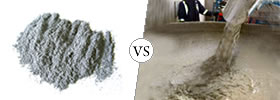Difference between Apache and Apache 2
Key Difference: Apache refers to the Apache HTTP server. It is an open-source, web server application designed for modern operating systems like Microsoft Windows, Netware, etc. It has been developed by the Apache Software Foundation. Many versions of Apache had been introduced. Apache 2 is generally used to refer to Apache 2.0. Apache 2.0 was upgraded from the Version 1.3. It has many types of changes including the compile time and run time configuration changes.
.jpg) Apache refers to the Apache HTTP server. It is an open-source, freely distributed, web server application designed for modern operating systems like Microsoft Windows, Netware, etc. It has been developed by the Apache Software Foundation. It is considered to be a ‘heavy duty’ network server. This server provides the facility of open license, and thus a user can easily manipulate the underlying code. The alterations are done to enhance the performance or to contribute on the future endeavor regarding the server.
Apache refers to the Apache HTTP server. It is an open-source, freely distributed, web server application designed for modern operating systems like Microsoft Windows, Netware, etc. It has been developed by the Apache Software Foundation. It is considered to be a ‘heavy duty’ network server. This server provides the facility of open license, and thus a user can easily manipulate the underlying code. The alterations are done to enhance the performance or to contribute on the future endeavor regarding the server.
This server provides a range of services like support to server side programming languages, etc. Performance of Apache is quiet the same as of a “high performance of other efficient web servers”. It provides support to several of features like support to authentication schemes. One apache can serve different websites by virtual hosting. Error messages are configurable. It is supported by many graphical user interfaces. Apache runs efficiently with most of the operating systems, but still it is generally used with Linux operating system.
Many versions of Apache have been introduced. Apache 2 is generally used to refer to Apache 2.0. The other two versions of Apache 2 series include - Version 2.2 and Version 2.4.
 Apache 2.0 was upgraded from the Version 1.3. It had many types of changes including the compile time and run time configuration changes. Apache 1.3’s module mod_auth_digest got established as a standard module. Server API was changed to a very large extent. Apache 2.0 provides better support to non-Unix platforms. The build system of this server has been completely replaced; this new build system is based on autoconf and libtool. Unlike Apace 1, it also supports the Multilanguage error responses to the browser. The configuration has been simplified. It also includes Perl Compatible Regular Expression Library (PCRE). Various new modules have been also added in Apache 2.0 – mod_day implements the HTTP Distributed Authoring and Versioning (DAV) specification to post and maintain web content.
Apache 2.0 was upgraded from the Version 1.3. It had many types of changes including the compile time and run time configuration changes. Apache 1.3’s module mod_auth_digest got established as a standard module. Server API was changed to a very large extent. Apache 2.0 provides better support to non-Unix platforms. The build system of this server has been completely replaced; this new build system is based on autoconf and libtool. Unlike Apace 1, it also supports the Multilanguage error responses to the browser. The configuration has been simplified. It also includes Perl Compatible Regular Expression Library (PCRE). Various new modules have been also added in Apache 2.0 – mod_day implements the HTTP Distributed Authoring and Versioning (DAV) specification to post and maintain web content.
Thus, Apache 2.0 is only a version o Apache. However, the differences between th Apache 1.x and Apache 2.x can be made to understand the server
Comparison between Apache 1.x and Apache 2.x:
|
|
Apache 1.x |
Apache 2.x |
|
Definition |
It generally refers to Apache 1.3. It has many enhancements as compard to its earlier versions. (Dynamic shared object support, support for Windows NT/95, etc.) |
Apache 2 is generally used to refer to Apache 2.0. Apache 2.0 was upgraded from the Version 1.3. It had many types of changes including the compile time and run time configuration changes. |
|
License |
The 1.1 version of the Apache License was approved by the ASF in 2000. |
The 2.0 version of the Apache License was approved by the ASF in 2004. |
|
Filtering |
Apache Modules cannot be written as filters |
Apache Modules can be written as filters |
|
Architecture |
Modular |
Modular |
|
Configuration |
Port and BindAddress directives are not present. |
Port and BindAddress directives are not present and only the Listen directive is used for IP address binding; |
|
Support for IPv6 |
No |
Yes |
|
Multilanguage error responses |
No |
Yes |
|
Problems/solution |
Problems -
|
Solution of the problems in the Apache 1 –
|
|
Module for compression |
mod_gzip module |
mod_deflate |
Image Courtesy: dcmms.sourceforge.net, geekpeek.net









Add new comment